第284章
LITERATURE.
In speaking of the literature of any country we are, I think, too much inclined to regard the question as one appertaining exclusively to the writers of books--not acknowledging as we should do that the literary character of a people will depend much more upon what it reads than upon what it writes. If we can suppose any people to have an intimate acquaintance with the best literary efforts of other countries, we should hardly be correct in saying that such a people had no literary history of their own because it had itself produced nothing in literature. And, with reference to those countries which have been most fertile in the production of good books, I doubt whether their literary histories should not have more to tell of those ages in which much has been read than of those in which much has been written.
The United States have been by no means barren in the production of literature. The truth is so far from this that their literary triumphs are perhaps those which of all their triumphs are the most honorable to them, and which, considering their position as a young nation, are the most permanently satisfactory. But though they have done much in writing, they have done much more in reading. As producers they are more than respectable, but as consumers they are the most conspicuous people on the earth. It is impossible to speak of the subject of literature in America without thinking of the readers rather than of the writers. In this matter their position is different from that of any other great people, seeing that they share the advantages of our language. An American will perhaps consider himself to be as little like an Englishman as he is like a Frenchman. But he reads Shakspeare through the medium of his own vernacular, and has to undergo the penance of a foreign tongue before he can understand Moliere. He separates himself from England in politics and perhaps in affection; but he cannot separate himself from England in mental culture. It may be suggested that an Englishman has the same advantages as regards America; and it is true that he is obtaining much of such advantage. Irving, Prescott, and Longfellow are the same to England as though she herself had produced them. But the balance of advantage must be greatly in favor of America. We gave her the work of four hundred years, and received back in return the work of fifty.
And of this advantage the Americans have not been slow to avail themselves. As consumers of literature they are certainly the most conspicuous people on the earth. Where an English publisher contents himself with thousands of copies, an American publisher deals with ten thousand. The sale of a new book, which in numbers would amount to a considerable success with us, would with them be a lamentable failure. This of course is accounted for, as regards the author and the publisher, by the difference of price at which the book is produced. One thousand in England will give perhaps as good a return as the ten thousand in America. But as regards the readers there can be no such equalization: the thousand copies cannot spread themselves as do the ten thousand. The one book at a guinea cannot multiply itself, let Mr. Mudie do what he will, as do the ten books at a dollar. Ultimately there remain the ten books against the one;and if there be not the ten readers against the one, there are five, or four, or three. Everybody in the States has books about his house. "And so has everybody in England," will say my English reader, mindful of the libraries, or book-rooms, or book-crowded drawing-rooms of his friends and acquaintances. But has my English reader who so replies examined the libraries of many English cabmen, of ticket porters, of warehousemen, and of agricultural laborers? Icannot take upon myself to say that I have done so with any close search in the States; but when it has been in my power I have done so, and I have always found books in such houses as I have entered.
The amount or printed matter which is poured forth in streams from the printing presses of the great American publishers is, however, a better proof of the truth of what I say than anything that I can have seen myself.
But of what class are the books that are so read? There are many who think that reading in itself is not good unless the matter read is excellent. I do not myself quite agree with this, thinking that almost any reading is better than none; but I will of course admit that good matter is better than bad matter. The bulk of the literature consumed in the States is no doubt composed of novels--as it is also, now-a-days, in this country. Whether or no an unlimited supply of novels for young people is or is not advantageous, I will not here pretend to say. The general opinion with ourselves, I take it, is that novels are bad reading if they be bad of their kind.
Novels that are not bad are now-a-days accepted generally as indispensable to our households. Whatever may be the weakness of the American literary taste in this respect, it is I think a weakness which we share. There are more novel readers among them than with us, but only I think in the proportion that there are more readers.
I have no hesitation in saying that works by English authors are more popular in the States than those written by Americans; and, among English authors of the present day, readers by no means confine themselves to the novelists. The English names of whom Iheard most during my sojourn in the States were perhaps those of Dickens, Tennyson, Buckle, Tom Hughes, Martin Tupper, and Thackeray.